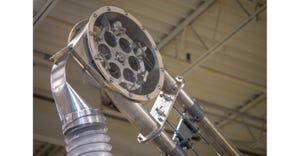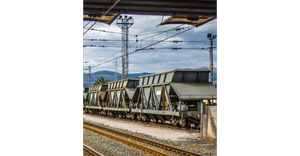September 26, 2018

You would think after all these years that our industry would realize that there is a scientific approach to solids handling and therefore silo design. The field of bulk solids handling was developed due mainly to the work of Dr. Andrew W. Jenike, who pioneered the theory of bulk solids flow at the University of Utah in Salt Lake City. Jenike’s approach requires two important considerations: Flow properties testing on the bulk solid to be handled, along with proper silo and feeder design.
The above considerations are often ignored. Why?
* “Because we have always done it this way”
* “Flow testing is too expensive”
* “We know someone who handles the same product and copied their approach”
* “Accounting will not approve the funds”
* “Gypsum is gypsum, it is all the same”
* “We use the material’s angle of repose to design our silos”
* “70° is steep enough for mass flow”
* “We have an existing feeder we want to use”
* “My material segregates and there is nothing I can do about it”
Let’s address these typical comments:
“We have always done it this way”
I love this one. Just because something worked in the past does not necessarily mean it will be successful again. Materials change, environmental conditions change, etc. Time and time again we visit facilities that use brute force to encourage flow, such as sledge hammers.
“Flow testing is too expensive”
Really? Flow testing allows you to identify your material’s flow properties. This information is used to design new silos or retrofit existing troublesome silos. Relatively speaking the cost of flow testing is “petty cash” when thousands and millions of dollars are spent on storage silos.
“We know someone who handles the same product and copied their approach”
This is dangerous as you may be handling the same product but provided by a different vendor. Materials from different vendors will likely flow differently. Many time we have tested the “same” material from two vendors and the flow properties of each are dramatically different.
“Accounting will not approve the funds”
The accounting department is responsible for maintaining profits. They know little about solids handling and how reliable flow can be economically beneficial. Accounting may insist on purchasing a less expensive product, simply to save money without any consideration as to whether the new product will flow differently.
“Gypsum is gypsum it all flows the same”
Time and time again we hear this and totally disagree. All gypsum or all flour is not the same. They can flow differently depending on moisture content, particle size, temperature and storage time at rest.
“We use the material’s angle of repose to design our silos”
Angle of repose is an easy number to determine, but it does not allow you to predict opening sizes to prevent arching and ratholing, hopper angles that ensure mass flow (flow along the hopper walls), etc. It simply determines the shape of a pile of material.
“70° is steep enough for mass flow”
While this may true for some materials, others it is not. In order to determine if your material will slide along the hopper walls, a wall friction test is required (to determine the friction that develops between your material and a wall surface). Dr. Jenike’s work allows us to determine the required hopper angle for mass flow from the wall friction test.
“We have an existing feeder we want to use”
Your feeder design is as important as your bin or silo design. In order to maintain mass flow, the feeder must withdraw material uniformly over the entire outlet cross-sectional area.
“My material segregates and there is nothing I can do about it”
Segregation is affected by your material’s flow pattern. A funnel flow pattern generally exacerbates segregation while mass flow will typically minimize segregation. Segregation problems typically occur with easy flowing materials, with particle size differences and some sort of interparticle motion, such as forming a pile.
These are just some of the things we constantly hear. If you recognize one, you are member of a large group. Education is required to use Jenike’s theories. Unfortunately, not many people are familiar with the science of bulk solids handling.
Joseph Marinelli is a consulting engineer and president of Solids Handling Technologies. He has been providing testing and consulting services since 1972. As a consultant working with Dr. Andrew Jenike, he has years of experience testing powders and designing bins and feeders for reliable flow. He lectures frequently on the topic of powder handling and has published several papers including an article in a chemical encyclopedia and two in a food powder book. He can be reached at 803-802-5527 or [email protected].
You May Also Like


